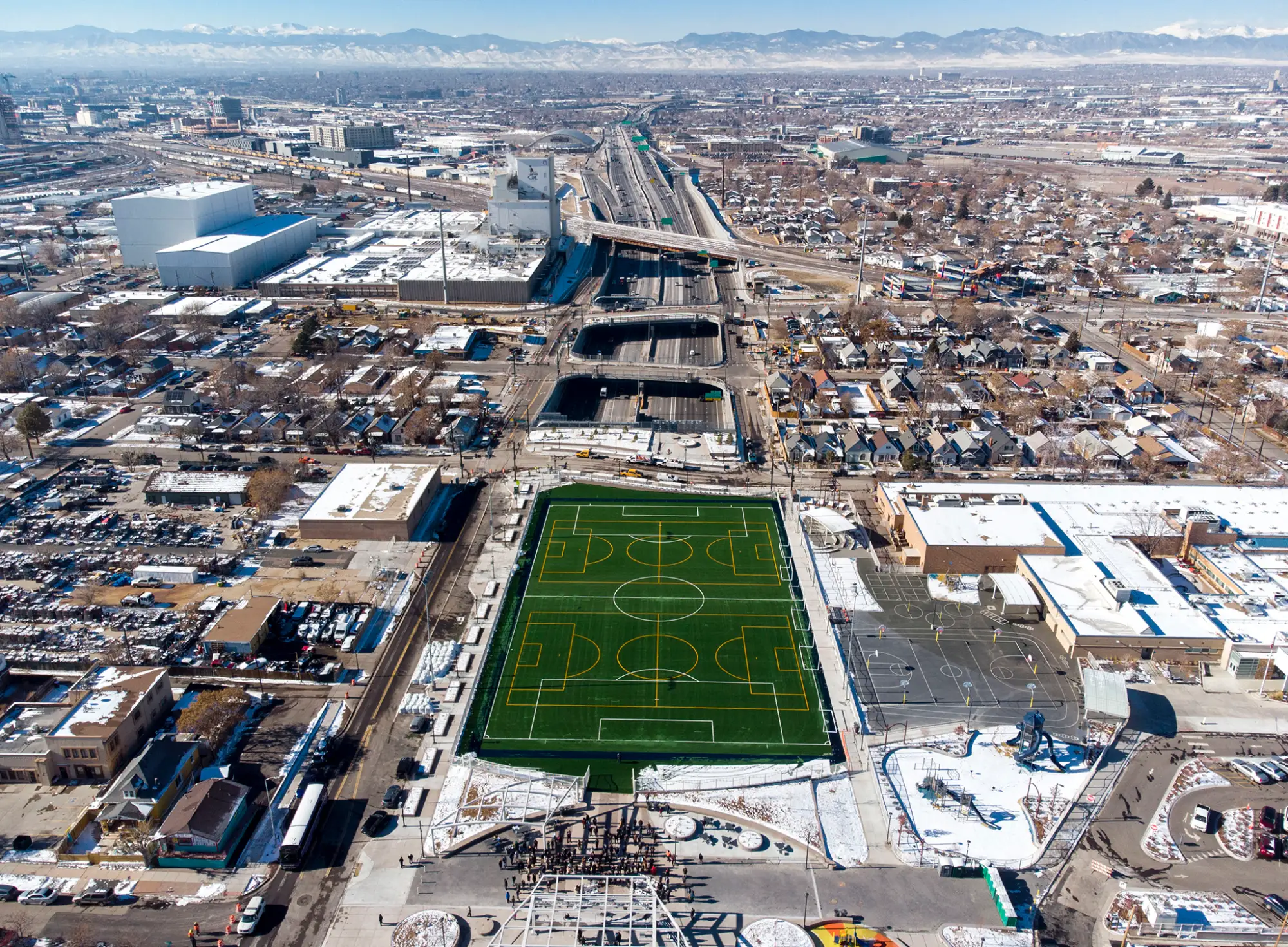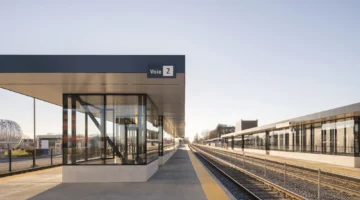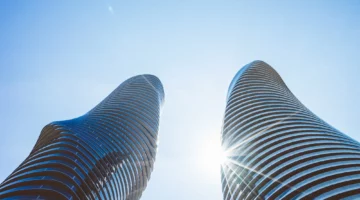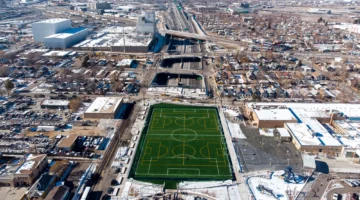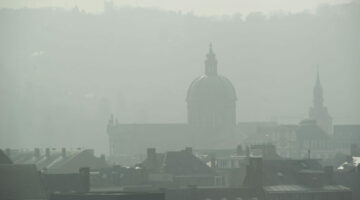Named "the cover park," the facility marked a significant achievement in the $1.2 billion overhaul of Interstate 70—a colossal and contentious infrastructure endeavor in Colorado's history. The community had long been divided by highways, and this project aimed to restore connection. Enduring over four years of disruption due to demolition and construction, residents anticipated the park's debut as a symbol of closure to a challenging chapter and the dawn of a more promising era.
"Apark on topof a busy underground highway was a first for Denver — a first, in fact, for the entire Mountain West. To outsiders, it seemed like a wonderful addition to Globeville Elyria-Swansea, or GES, a predominantly Latino community in North Denver. It featured an amphitheater, two soccer fields and a splash pad for overheated kids on hot days, though no splash pads were needed at the ribbon-cutting ceremony last November, when temperatures dipped into the 20s. About 160 freshly planted saplings, their bases powdered with snow, dotted the park’s four acres, and the Rocky Mountains rose dramatically in the distance. Plumes of smoke from the nearby Purina factory marred the view slightly, but overall, it was a peaceful scene, especially considering that 10 lanes of cars were speeding by underneath.
The park itself cost $125 million, and the soccer fields’ turf was so new that it still curled up at the corners, occasionally causing attendees — mostly bureaucrats in puffer jackets and polished dress shoes — to stumble. Gov. Jared Polis was present, as was Denver’s then-mayor, Michael Hancock, a 54-year-old Democrat. At 11 a.m., the speeches began.
Hancock, the second Black mayor in the city’s history, declared, “This is a proud moment for Denver.” With more stories coming to light about how highway projects had fractured communities of color, a national demand has risen to address the consequences. In 2021, President Joe Biden’s Bipartisan Infrastructure Law set aside $1 billion to reconnect divided neighborhoods, and while that money didn’t fund I-70’s facelift in GES, which was already underway, politicians would frame the project as emblematic of the national moment. Hancock boasted that it sought input from residents and created local construction jobs. “This,” he said, “is the result of community engagement and community visioning.” [...]"
